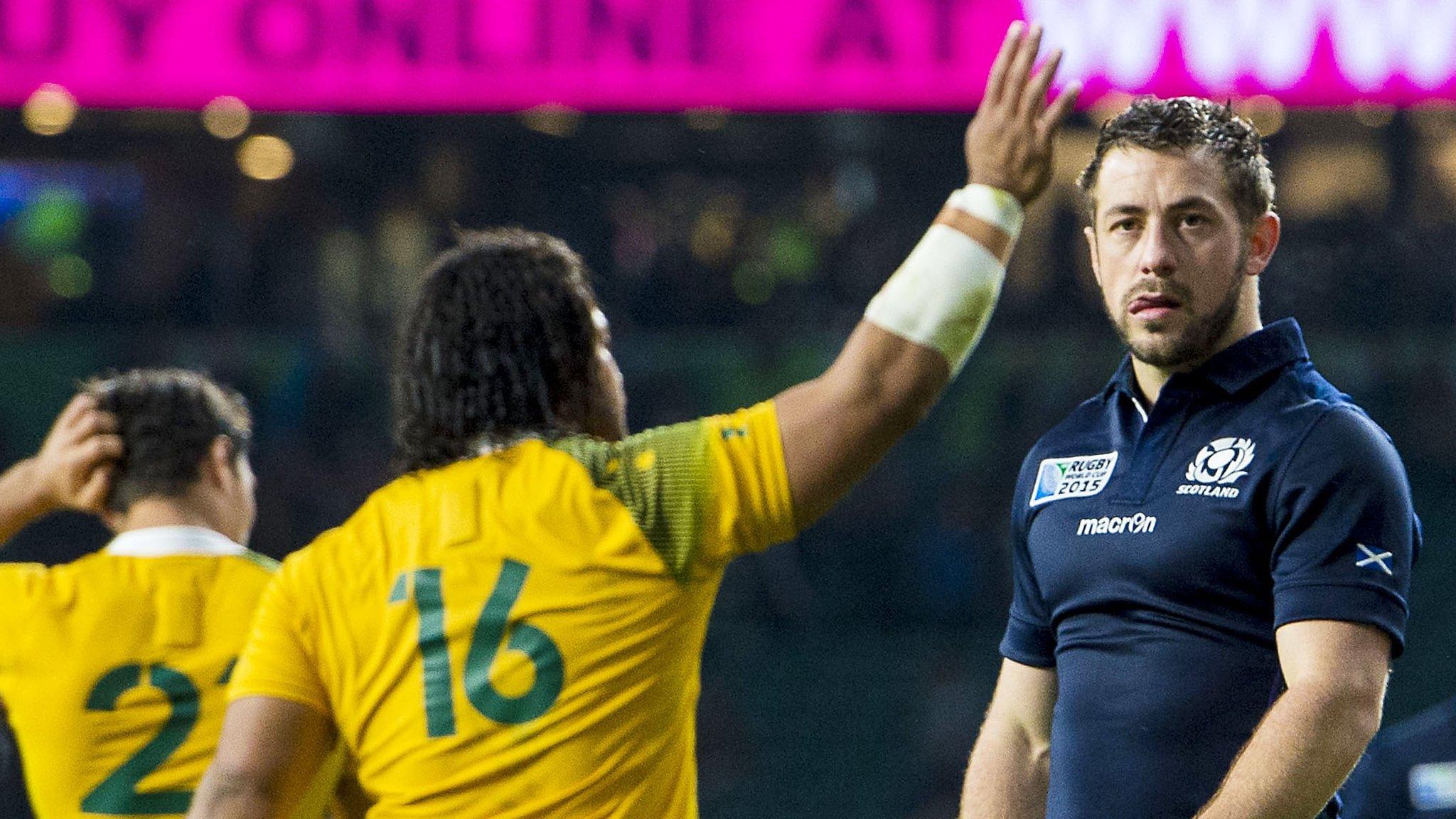Joey Barton & Rangers: How midfielder wilted at Ibrox
- Published
Joey Barton arrived at Ibrox with trumpets blaring. He leaves with a whimper; an eight-game, 133-day soap opera that was more Eldorado than EastEnders.
A short-lived and expensive failure. That's the beginning, the end and the in-between of Barton's sojourn in Scotland.
Quite how much cash this gamble will end up costing Rangers is hard to say. Estimates of his salary ranged anywhere from £16,000 a week to £26,000.
Most settled at about £20,000 - so, by that measure, in wages alone, he relieved his former employer of £320,000 for participating in wins against Annan Athletic, Stranraer, Peterhead, Motherwell and Dundee, draws against Hamilton Accies and Kilmarnock and that 5-1 loss to Celtic.
We don't know how much money the Scottish Premiership club had to part with in the divorce settlement, but Barton was on a two-year contract and, for all his previous chat about not being in the game for money - when joining Burnley he said he would have signed for 50p a week - he knows his own value and his representatives wouldn't have been soft touches in the negotiations.
Back in the summer, when Barton made all the right noises as a new Rangers player, this deal looked like it was going to bear fruit. He sounded excited about coming to Scotland, he sounded ready for the battle.
The 34-year-old spoke about his knowledge of the landscape north of the border and the pressure to deliver as a Rangers man. He came across as a guy who knew what he was letting himself in for.
He didn't. Neither, it has to be said, did Rangers boss Mark Warburton, the man who signed him.
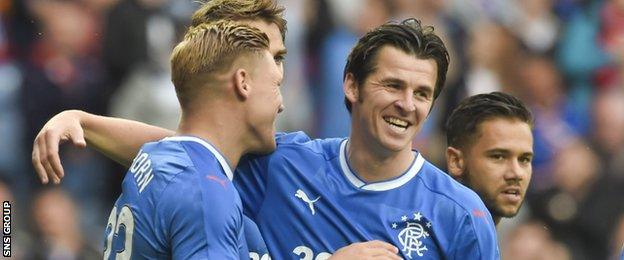
Joey Barton played just eight games for Rangers
On the face of it, this should have worked. Barton was terrific in helping Burnley win the Championship last season.
He was their player of their season, their rock protecting the defence. He had hunger and presence. Last season was a reminder that, even though he has behaved horribly in his career, he is still a fine footballer when the mood is right.
Rangers thought they were getting a leader, a standard-bearer. That notion began to wear thin when he started firing verbal volleys on radio weeks before he ever landed in town.
His trash-talking of Scott Brown was fun - as was the Celtic midfielder's response - but it was illustrative of Barton's mindset, which was all wrong.
By picking out the most high-profile - and arguably the best - player in Scotland (Brown) and announcing that he wasn't in his (Barton's) league, the Englishman betrayed a psychology that would bring him down. The Scottish Premiership is not of a high standard, but it's intense, it's physical and, at places like Rangers, those who can't handle the pressure tend to get found out pretty quickly.
Barton was too full of hubris to see the reality. He thought he was better than Brown and, by extension, better than Scotland.
He was going to come up and teach the natives a footballing lesson. He was going to not just outplay the Celtic captain, he was going to embarrass him.
In his first Premiership match, he got nutmegged by Ali Crawford in a 1-1 draw against Hamilton at Ibrox. In a later game, another 1-1 draw against Kilmarnock, 19-year-old Greg Kiltie ran away from him in the build-up to their goal. He was non-descript in most of the games he played.
It was obvious that Barton was having a job dealing with the Crawfords and the Kilties, never mind the Browns. After that match against Hamilton, he said that "people expected us to just turn up and win today".
That was an ironic comment coming from a player who only a few weeks before announced from the rooftops what a top player he was.

Barton's last game for Rangers was a 5-1 league defeat at Celtic
It's hard to know for sure if Warburton took Barton aside after his goading of Brown and told him to knock it off and get his head in gear - but if he did, Barton didn't seem to pay much attention.
The bombast continued on radio station Talksport, only this time Barton was dishing it out to the Celtic manager, Brendan Rodgers, about his "tan and his teeth", while suggesting that the Northern Irishman was going through a midlife crisis.
Rangers dismissed this as Joey being Joey, a cheeky chappie who just likes noising people up but doesn't mean anything by it.
Respect is a big part of Warburton's mantra. He is a like a greyhound out of the traps when he perceives disrespect from others towards himself, his players or his club.
However, he let the Barton jibe at a fellow manager slide. In public at any rate, he didn't see much wrong with it.
Even by then, Barton was pushing the boundaries at Ibrox. Barton needed a verbal slap to get his mind on what he was supposed to be doing - influencing matches - but did he get it?
His behaviour, it has become apparent, began to get out of line behind the scenes. The dressing-room got fed up with his hectoring, his big-time routine.
If he was performing well and offering leadership in difficult weeks then his fellow players might have tolerated his barbed-wire tongue, but on the field, he was off the pace, an ego failing to live up to his own hype.
It all came to a head after the Old Firm game, when Barton got routed by Brown. Barton's response was to go on the warpath in training the following week.
After such a drubbing, harsh words needed to be exchanged, for sure - but Barton had been indulged to such an extent by that point that he shouted and bawled at his manager in a way very few professional footballers would.
That was Barton's fault, but also Warburton's. A manager creates the mood at a club. He sets the code of conduct.
Warburton allowed Joey to be Joey for too long. His tolerance blew up in his face, almost literally.
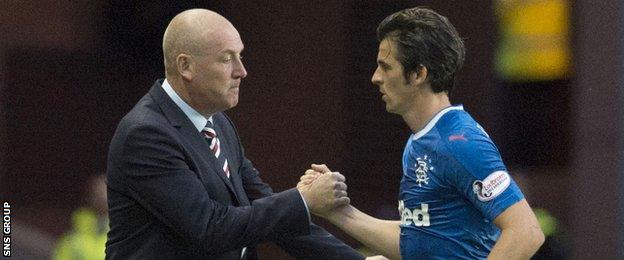
Barton was Mark Warburton's marquee signing over the summer
Barton was sent away from Rangers for a week to lie low and cool down. Instead, he went on national radio to talk of Rangers' "strange" behaviour towards him.
Then he did three newspaper interviews to publicise his book, then he did more radio followed by a Q&A with invited guests.
The game was clearly up at that stage. In one of those interviews, Barton said that, if he had his time again, he probably wouldn't have joined Rangers.
He sounded like a guy who wanted out. In the next breath, he said he was looking forward to heading back there and making things rights.
Contradiction followed contradiction. Joey being Joey.
There was no chance of Barton and Rangers finding peace. The club couldn't handle the player - a costly embarrassment - and the player couldn't handle the environment he thought he was going to lord it over.
There was a battle to be fought right enough, but Barton wasn't up to it. For all his fighting talk, he wilted in weeks.
- Published10 November 2016
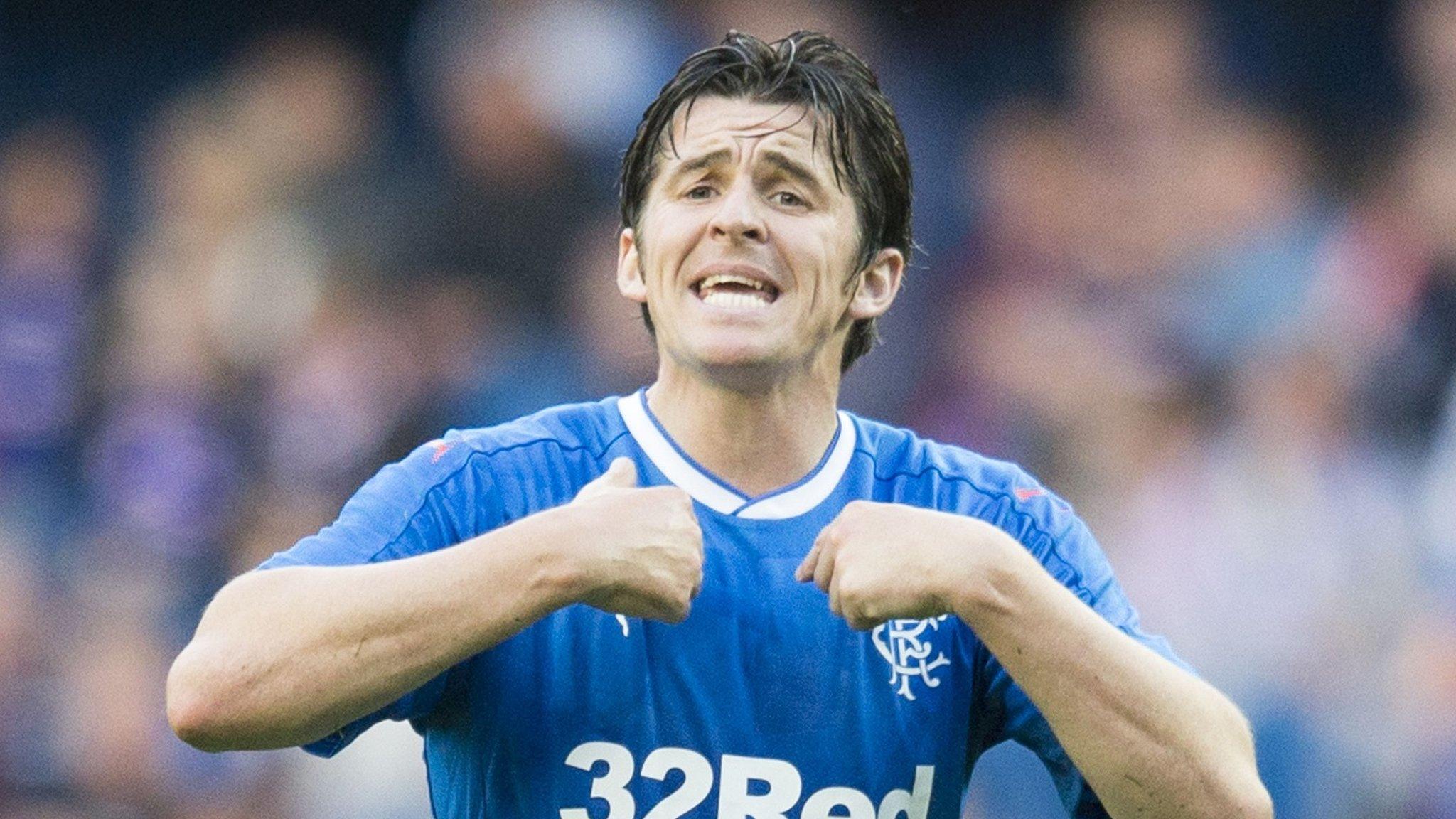
- Published10 November 2016
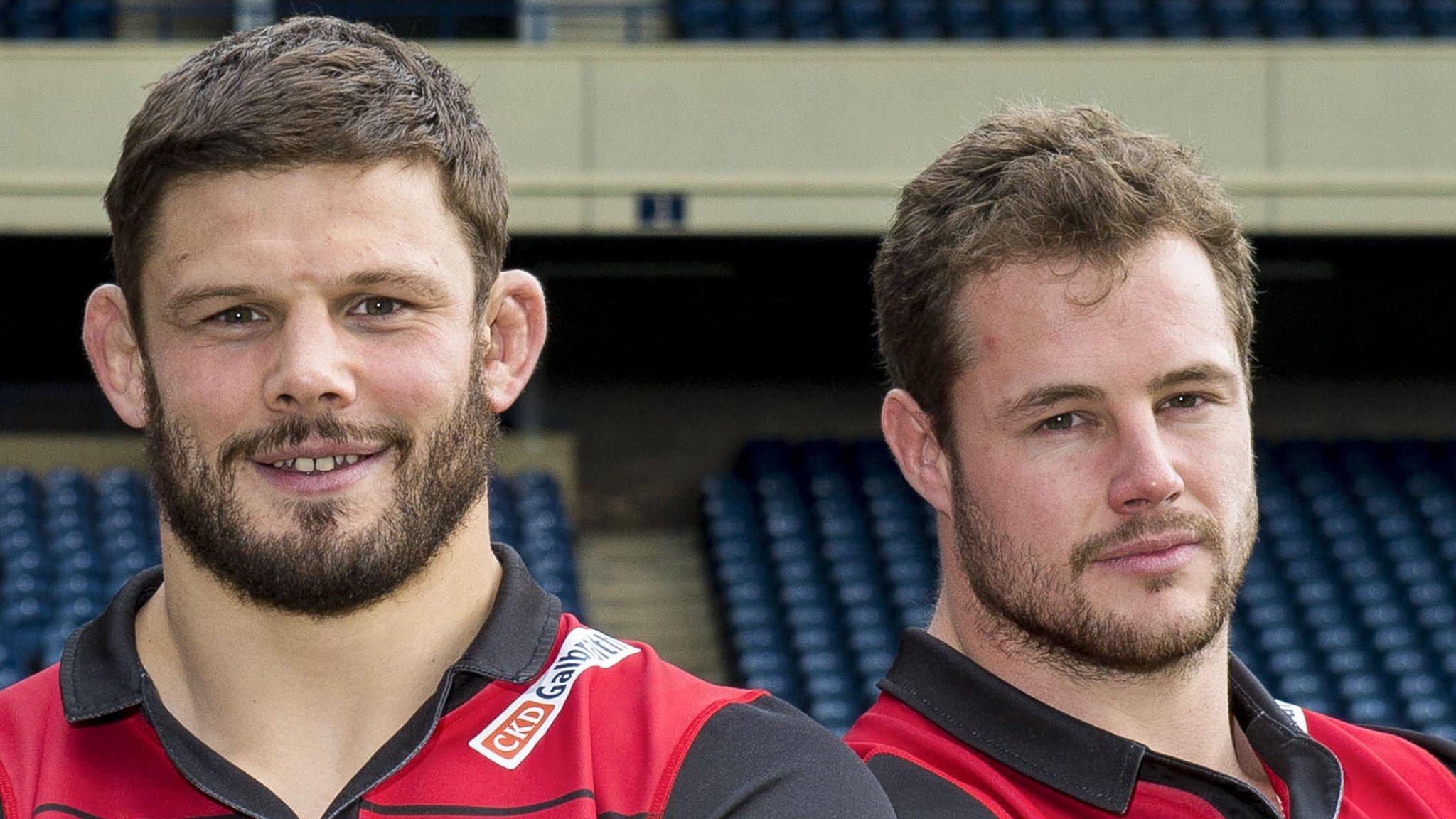
- Published10 November 2016
